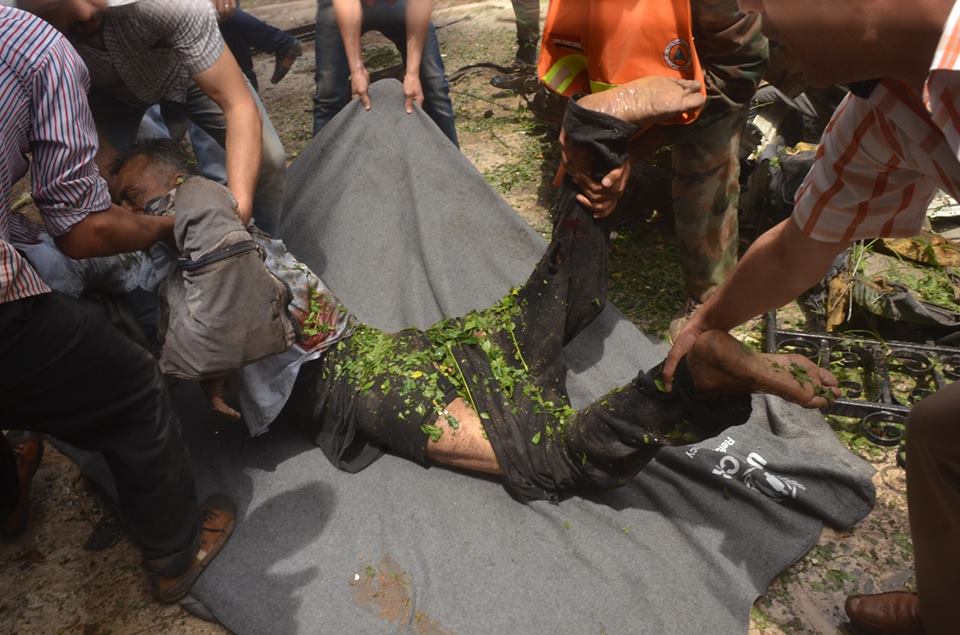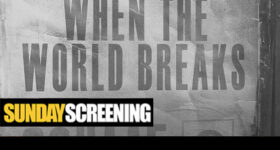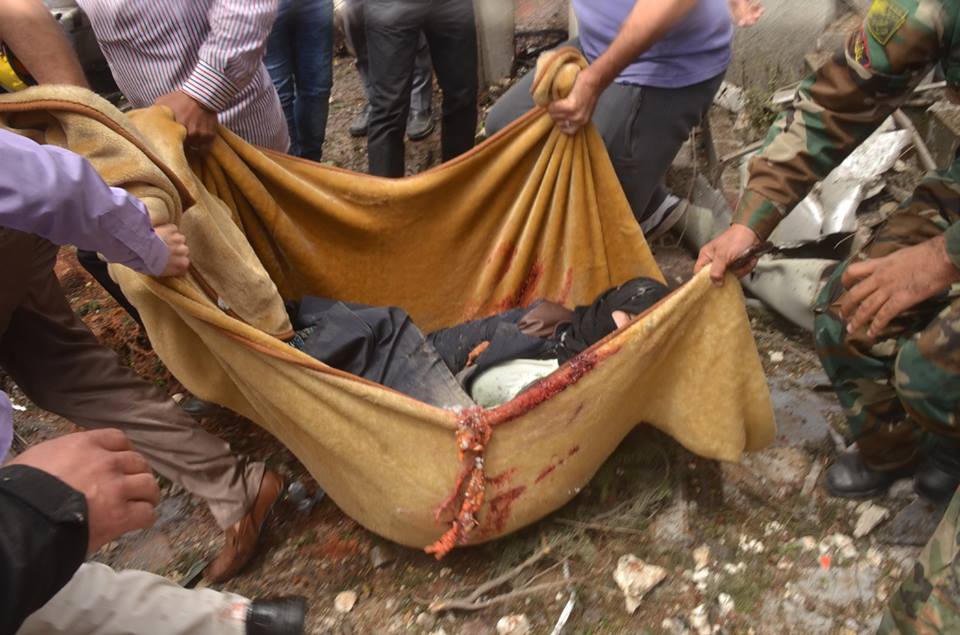
Aleppo under attack from Al Nusra aka Al Qaeda terrorist Hell Cannon
“Most of the city is under the Syrian government’s control. A small part is in the hands of armed groups, or terrorists as we consider they are.” ~ Dr Tony Sayegh
Aleppo is Syria’s largest city. During the conflict’s first year Aleppo was relatively calm, unlike many other Syrian cities. In July 2012 hell broke out. The story from medical doctor Tony Sayegh about life in the million-city is dramatically different from the one we usually hear. In this interview he talks about living under terror, about the sanctions and the road to peace.
Hell on earth. Hospitals bombings. Tens of thousands of refugees.
No one has been able to escape the dramatic news about Aleppo in North Western Syria. But Tony Sayegh is not satisfied with how the Western media describes the situation. The first thing he does when we reach him on the phone is to say thank you.
Tony Sayegh: “I say thank you, because the Western media always reports from the other side. We who are living in the Government-controlled area of Aleppo are never allowed to express our views about what is happening. In almost four years we have lived under the fire from terrorists.”
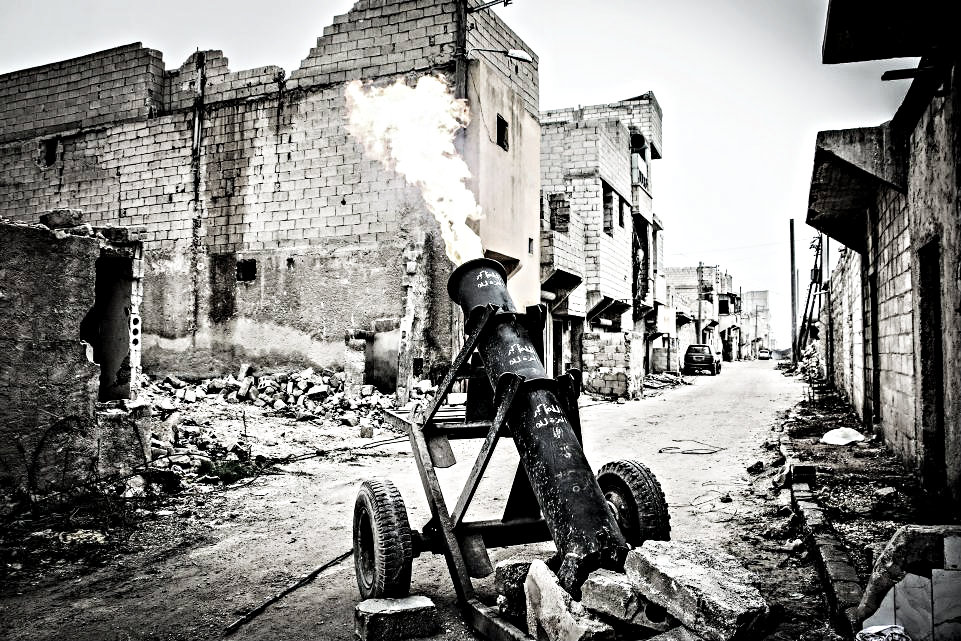
Al Nusra [Al Qaeda] Hell Cannon, Aleppo
Proletären gets in contact with Tony Sayegh through the Syrian Medical Association in Aleppo. He is a surgeon and teaches at the faculty of medicine at Aleppo University.
TS: “Many doctors have left the city. Either because they are afraid or because there are no jobs. Many hospitals and clinics have been destroyed.”
Despite war and hardship Tony Sayegh has stayed and continued with his life, just like most of the city’s residents. He is anxious to give his view on the development and tell who are ones guilty of terrorism and attacks on hospitals.
TS: “We who live here refuse to talk about the western and eastern Aleppo, as if the city would be divided into two parts. It’s not true. Most of the city is under the Syrian government’s control. A small part is in the hands of armed groups, or terrorists as we consider they are.”
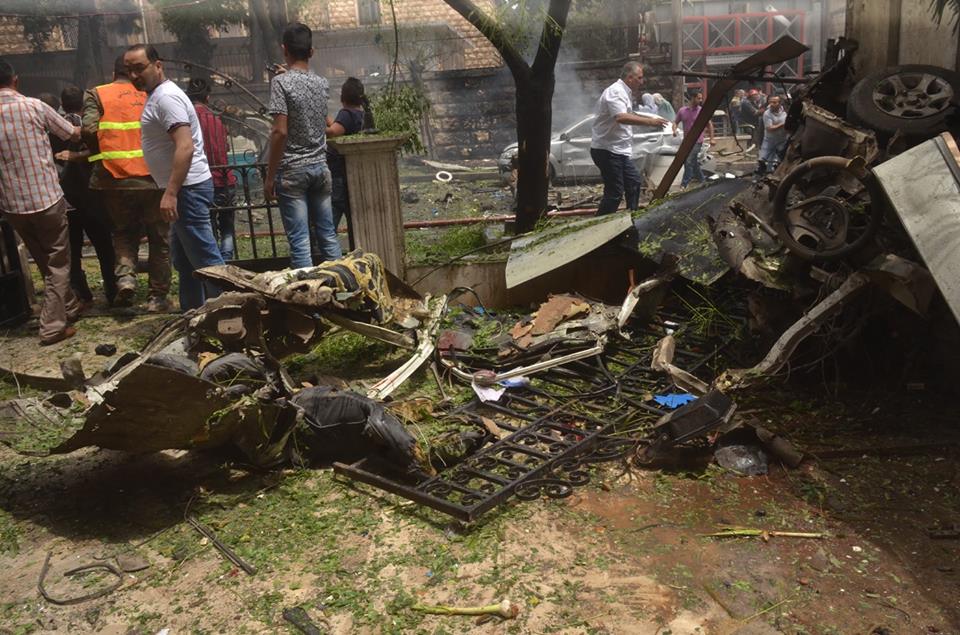
Al Nusra targeting Government held areas of Aleppo
The words from Tony Sayegh are important. A large majority of Aleppo’s inhabitants, nearly 1.5 million people, are in the government-controlled area. In the ”opposition-controlled” and much smaller part there is about 300,000 people. Yet it is this side media constantly refer to in the reports from Aleppo.
It is also important to note that opposition in this case means Jabhat al-Nusra, stamped as a terrorist group by the UN, and its allies. Because these groups are the ones who control the opposition area of Aleppo.
1: What do you think about the allegations that Syrian and Russian air force are bombing civilian targets in the “opposition” Aleppo? In late April, photos were spread from Al-Quds hospital where ”Aleppo’s last paediatrician”, Wassim Mohammed Maaz, was killed. Doctors Without Borders who support al-Quds condemned the attack.
TS: “First I want to say that we in the Syrian Medical Association have not heard of him. Every doctor in Syria must register in the association to be allowed to work. Since we do not know who he is, we can not express an opinion. The same applies to other doctors who are reported dead.
But I want to inform you that we know many doctors in terrorist-controlled areas, says Tony Sayegh. We have doctors there who work for and are paid by the Syrian government. Residents in these areas need the care as well.”
As for al-Quds Tony Sayegh does not believe the media reports. Four years ago there was no such hospital in Aleppo. Whatever it was that was attacked, it was not an established, well-known health facility. Tony Sayegh believes that the images of an anonymous building with sandbags outside indicates that it was a military site.
TS: “Doctors Without Borders is also not a clean organization, they have their financiers and receive outside support”
Doctors Without Borders have previously admitted that field hospitals in the Syrian opposition areas that the organization supported primarily cared for rebel fighters and not civilians. This is not mentioned in the media reports.
And it is not mentioned that the al-Qaeda group Jabhat al-Nusra in Aleppo has taken over health facilities and used them for other purposes. Already in April 2013 New York Times wrote that al-Nusra ~
“..has set up camp in a former children’s hospital and has worked with other rebel groups to establish a Shariah Commission in the eye hospital next door to govern the city’s rebel-held neighborhoods”.
2: What was it like in Aleppo before the conflict? And what happened when the war came to the city?
TS: “The people of Aleppo lived a normal life like in any city. It was a quiet town. Aleppo is Syria’s economic and industrial capital. During the first year of the Syrian crisis many people moved here from other cities, because in Aleppo it was quiet and the economical situation was good.”
In July 2012 everything changed. But it was not the residents of Aleppo who rebelled against the rulers. Parts of the city were invaded by armed groups with fighters from other areas of Syria and from other countries. Tony Sayegh believes that the interests at stake of the invasion was much bigger than the control of a single city.
TS: “The attempt to overthrow the government of Syria with weapons and riots had failed. Then they decided to focus on Aleppo, to turn against the whole Syrian economy. The armed groups took over the water utilitys and power plants to stop the supplys to the residents, and they focused on the industries. Entire factorys were taken down and driven to Turkey. They stole everything. That was when everything turned upside down and the bad days of Aleppo began.”
3: Who were behind the invasion and the looting of industries?
TS: “Those who did this are terrorists no matter which name they go under. Most were not even Syrians, although there are Syrians among them. They got orders from outside. The looting of factories to Turkey took place on the orders of Mr. Erdogan, the president of Turkey.”
Four years after the invasion, life remains difficult in the Government-controlled area of Aleppo. Power shortage is a major concern. Food is available for purchase, but it is expensive. Something that makes life even more tough are the economic sanctions that the US and EU have imposed on Syria.
TS: “The sanctions do not hit the government but the people. It is us who pay the price. Luckily, Syria still has friends so we can buy medications. Although many doctors left and hospitals have been destroyed, and although we lack a lot, we still give patients a good health care”
For almost four years the violence has been ever present. The weeks before our conversation there were reports about massive bombardment of rockets, grenades and gas canisters against government areas. Among the places attacked, parts of the Maternity Hospital al-Dabit was destroyed and twenty people were killed.
TS: “It’s nothing new. We get our daily dose of bombs and grenades from the terrorists. We do not know whether it is accidental or intentional, but innocent people are killed, women and children are killed. This is never reported in the West.”
4: In the Western world we often hear about “moderate rebels” and “opposition” fighting for democracy and getting weapons and military training from the West.
TS: “We are still trying to understand the meaning of “moderate rebels” and “opposition”. We do not understand, we have not found them. They are terrorists who go by different names, like Jabhat al-Nusra or Daesh, and they are supported by the Gulf States.
Is Saudi Arabia a defender of democracy and human rights? Compare the situation of women in Syria before the conflict with the situation for women in Saudi Arabia. Their talk of democracy and human rights is a joke.”
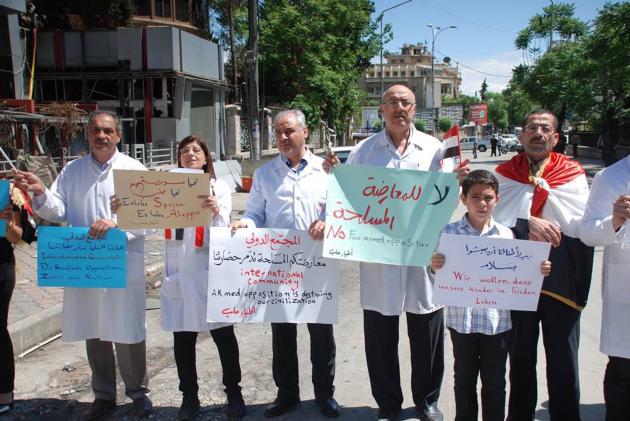
Aleppo Doctors protest US NATO terrorist targeting of Al Dabit maternity hospital May 3rd 2016
The war in Syria has been going on for more than five years. Despite the ceasefire agreement and meetings organized by the UN the killing and destruction continues. When these words are written, we hear tragic reports about the horrific terrorist bombings in the coastal cities of Jableh and Tartus with so far 148 dead.
We finish the conversation with Tony Sayegh with the question that we have asked many Syrians during the years of conflict:
5: How to make peace in Syria? What should the outside the world do to help Syria and its people to get away from the hell of war?
TS: “I’ll give you a short answer. Leave us alone, forget us.”
What do you mean?
TS: “Well, what we need is the US, Europe, Turkey and the Gulf States to leave us alone and stop supporting terrorists. There should be a decision by the UN Security Council that other states should stay out of Syria and that all those who have supported the terrorists should be punished.
When you have left us alone, when the borders are closed and you have forgotten about us, then I am confident that the Syrian army can bring us peace.”
***
READ MORE SYRIA NEWS AT: 21st Century Wire Syria Files



